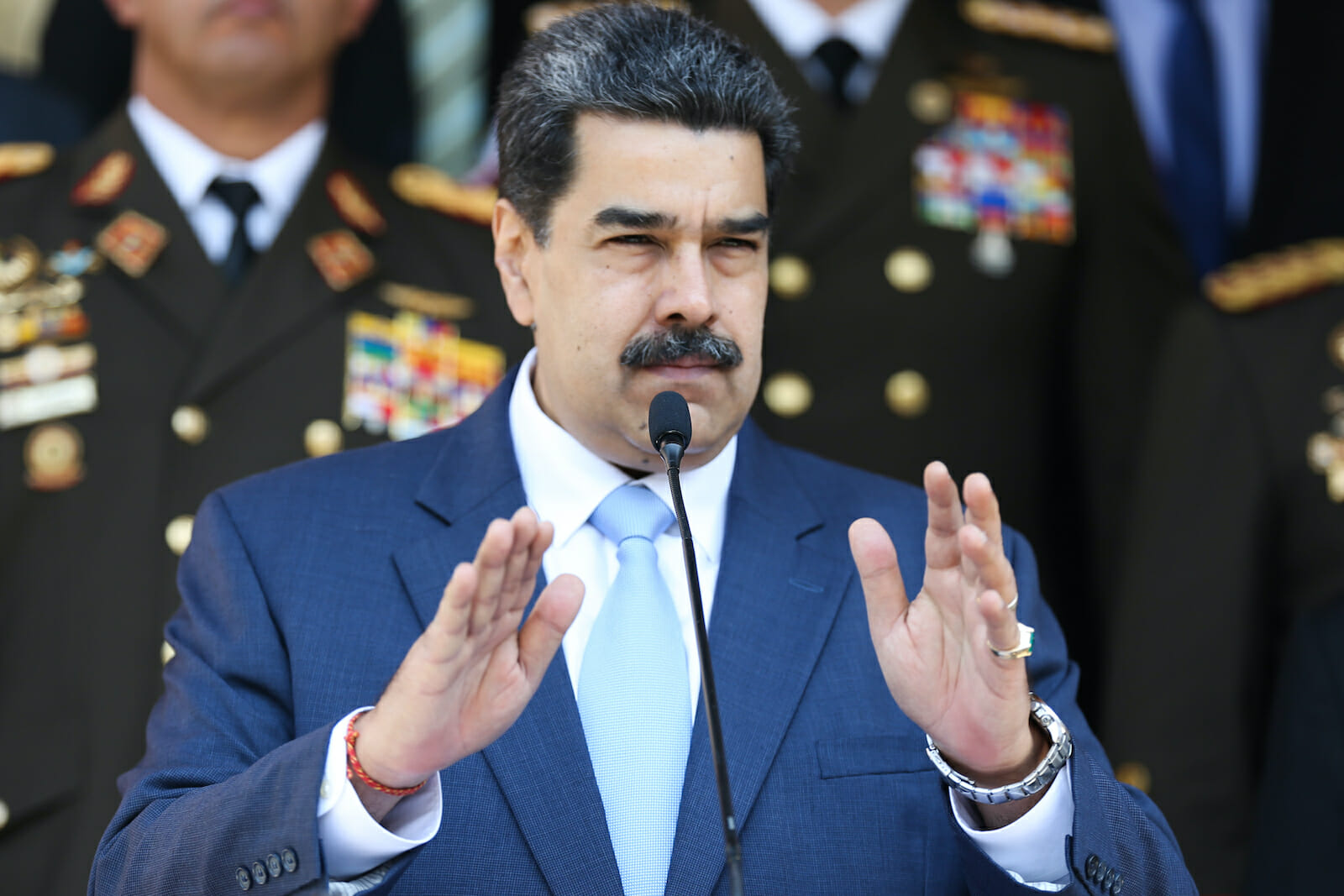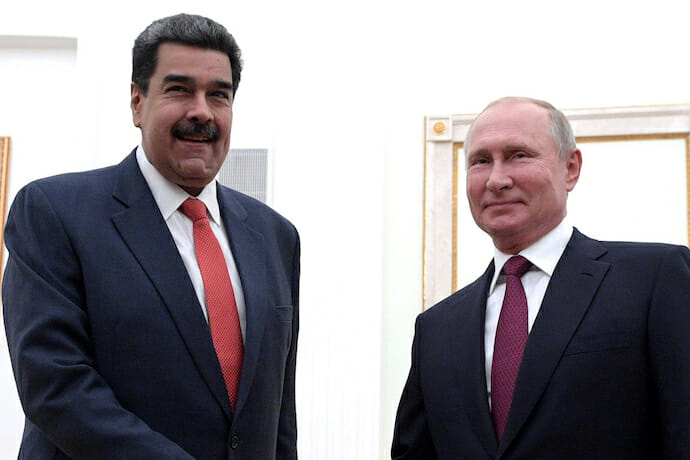
Russia’s Interest in Latin America: Venezuela as a Strategic Foothold in the West
Under Vladimir Putin, Russia has expanded the physical geographic scope of its foreign policy to other areas of the world that it typically used to overlook. This includes the Middle East, Africa, and Latin America–more specifically, Venezuela. The latter is of interest to Russia because of a troubling trend of economic, social, and political instability. Russia’s overall involvement in Venezuela is strategic. By deepening the Kremlin’s involvement in the economy and attempting to maintain authoritarianism in the country, President Putin aims to strengthen Russia’s foothold in the Western hemisphere.
Russia’s Economic Involvement in Venezuela
Since the mid-2000s, Venezuela has been in the midst of an economic collapse that can be attributed to former President Hugo Chávez’s dependence on oil as a source of national revenue. Then, under President Nicolás Maduro, the government was ordered to print money to offset the country’s debt, causing hyperinflation; by 2014, “anti-government protests” had formed. The country’s severe economic crisis has since caused food and job shortages, and massive bouts of emigration.
This is where Russia comes in. As one of the most economically unstable countries in the world, Venezuela presents itself as an incredibly enticing opportunity for Russia to gain a foothold in Latin America under the guise of ‘helping’ another country. Russia’s recent involvement in Venezuela began in the early 2000s when Venezuela agreed to pay $400 million for a 49 percent stake in OJSC Evrofinance Mosnarbank, one of Russia’s largest commercial banks. Then, in 2013, it became known that Russian oil producers “planned to invest $17.6 billion” in Venezuela in order to quadruple the two countries’ combined output by 2019. President Maduro backed up this claim when he announced that Venezuela planned to form a “strategic alliance” with Russia with a focus on petroleum production, gas production, and equipment and energy services.
More recently, despite U.S. sanctions, Venezuelan oil is still “flowing onto world markets” with the help of Russia’s state-owned oil company, Rosneft, which continues to accept Venezuela’s crude oil as debt payment. Moreover, in February 2020, after meeting with President Maduro, Russian Foreign Minister Sergei Lavrov stated that “We [Russia] have agreed to deepen our economic, commercial and investment co-operation in several areas,” including energy, natural resources, and industry sectors. Additional Russian economic involvement in Venezuela manifests itself in the form of Russian grain exports. The United Grain Company in Russia is reported to have sent 254,000 tons of grain to Venezuela in 2018 and allegedly more than 600,000 tons in 2019.

Russia’s Efforts to Maintain Authoritarianism in Venezuela
In tandem with its economic crisis, Venezuela is also experiencing political turmoil. Since President Maduro took over in 2013, the Venezuelan government has been besieged by claims of corruption and political mismanagement. According to the U.S. Department of State, “Maduro and his associates have been responsible for the theft and embezzlement of billions of dollars,” as well as found guilty of instances of bribery, drug smuggling, money laundering, and the illegal removal of gold from the country’s Central Bank. The Maduro regime has also been blamed for causing a number of other issues, including a massive economic decline, a decreased supply of food and medicine, decreased access to food, and decreased hospital services.
The political disarray in Venezuela, bolstered by the proverbial tug-of-war between President Maduro and opposition leader Juan Guaidó, leaves the country vulnerable to Russian influence. According to scholars, President Putin’s support of President Maduro demonstrates Russia’s efforts to “undermine the international liberal order by supporting a friendly authoritarian ruler fraudulently ‘re-elected.’” The political discontent in Venezuela, caused by the bitter power struggle between Maduro and Guaidó, has created space for President Putin to cement Russia’s support of President Maduro.
Regardless, Russia’s recent political involvement in Venezuela, under President Putin, dates back to the early 2000s when in 2008, Russia sent TU-160 strategic bombers to the country for the sole purpose of participating in a joint naval exercise in the nearby Caribbean Sea. Russia has also capitalized on its political ties to Venezuela by selling the country military equipment, sending them military advisors, and hosting meetings between President Putin and members of the Maduro regime at the Kremlin.
However, Russia’s most notable political involvement in Venezuela revolved around keeping President Maduro in power. In May 2018, the Kremlin announced that it will continue to provide President Maduro with critical support, and that “The Russian president wished Maduro good health and success in resolving the social and economic issues facing the country.” Russia’s support for the Maduro regime, particularly President Maduro’s re-election, came at a time when the U.S. government outspokenly called the Venezuelan reelection process “a sham — neither free nor fair.” However, despite the country’s best efforts under President Maduro, Venezuela has become increasingly reliant on economic, military, and political support from Russia.
Russia, Venezuela, and the Coronavirus
In April 2020, Rosneft, Russia’s state-owned oil company, halted all activity in Venezuela, effectively depriving the country of most of its oil revenue. The decision comes after crude oil prices plummeted because of the novel coronavirus’ effect on global markets. Venezuela is already one of the poorest countries in Latin America, and it is severely unprepared to fight the virus due to a lack of healthcare infrastructure, healthcare professionals, and widespread poverty. Rosneft’s abrupt withdrawal from the country leaves a significant dent in Venezuela’s economy. However, what Russia has done is provide Venezuela with 10,000 coronavirus test kits to help combat the spread of the virus among the domestic population. This comes after Russia already sent test kits to the United States, Serbia, and Italy, among other countries.

